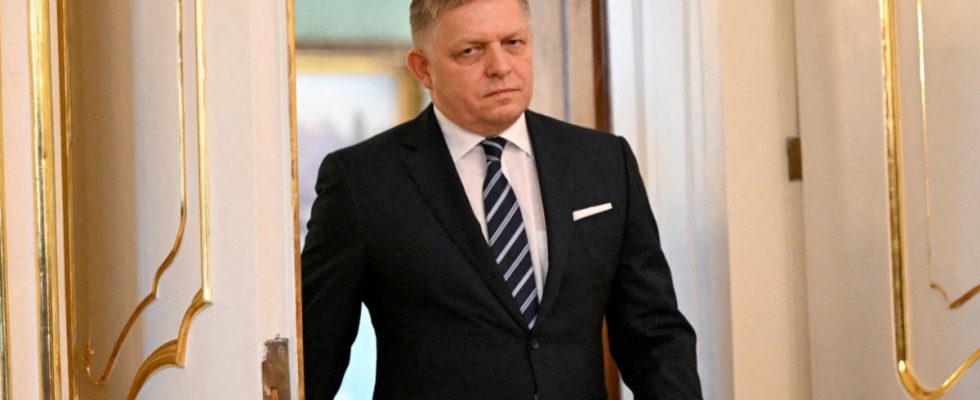Robert Fico has the daily newspaper Dennik N Haven’t answered any questions for a long time. But for the past three years he has only been an opposition leader, corona denier and conspiracy teller who blamed the USA for Russia’s war of aggression in Ukraine. Robert Fico is now Prime Minister of Slovakia for the fourth time. And ignoring media becomes an official strategy.
Fico has now told four media outlets that he will no longer speak to them, a private television channel, Dennik N and another daily newspaper and an online portal. The four media outlets, Fico explained, spread “openly hostile positions” based on “false or incomplete information and the concealment of information.”
There are also supporters of pro-Russian conspiracy stories in parliament
Fico is also among the media that he doesn’t want to talk to Aktuality.sk. Ján Kuciak worked at the online news portal, which is part of the Swiss Ringier Group, and was apparently shot at his front door with his girlfriend in February 2018 because of his research into the mafia milieu.
Journalists from other media outlets that Fico now rejected also received death threats and were temporarily under police protection. The murder of Kuciak, who was only 27 years old, brought Fico’s downfall. The research led to Fico’s immediate environment. Investigations against him and his then Interior Minister Robert Kaliňák led to raids and brief arrests, but there were never any charges or even a trial. Kaliňák is now defense minister and has also brought his son into parliament. The then police chief Tibor Gašpar, who also had to resign after Kuciak’s murder, also entered the Národná Rada, the Slovak parliament, with Fico’s Smer-SD party in the election on September 30th.
On Tuesday, Fico approved his government program in parliament. His coalition partners are the social democratic party Hlas (Voice), which split off from Fico’s Smer-SD under former Prime Minister Peter Pellegrini, and the right-wing nationalist Slovak National Party (SNS). Several non-party members entered parliament on their list, attracting a large following on social networks with some fascist and pro-Russian conspiracy stories.
This government longs for impunity, says a liberal
Fico’s government program envisages – although still quite vague – changes to investigative and criminal prosecution authorities; the police chief has already been dismissed. Fico and other politicians in his party had claimed during the election campaign that the police and courts were themselves politically active or were being used by the government and the president for their own purposes. Several candidates on Fico’s list were investigated during the election campaign on suspicion of corruption.
Fico’s government program now says that the police and judiciary need to be more closely monitored. In general, the rights of the accused should be strengthened and penalty rates reduced. Critics see the danger that proceedings will be drawn out even more than before. At Tuesday’s National Council meeting, new opposition leader Michal Šimečka from the liberal Progresívne Slovensko party said: “The only thing that motivates this government is its desire for impunity, and the only thing this government is prepared for is revenge.”
With its new course, Slovakia seems to be moving much closer to Hungary, both in the way it governs and in foreign policy. In the former sister state of the Czech Republic, however, the new government in Bratislava is viewed with concern. The Czech Republic recently imposed its own additional sanctions against Russia in addition to the EU sanctions and is clearly on Ukraine’s side.
Fico said on Tuesday that he respected Slovakia’s membership in the EU and NATO, but foreign policy would be oriented “in all four directions.” In the future, new sanctions against Russia should always be checked first for their impact on Slovakia; Slovakia is suffering the most from this, it is said in Bratislava. However, during his visit to Brussels at the end of October, Fico supported all decisions made by the EU states.
The President of Slovakia, Zuzana Čaputová, and her Czech colleague Petr Pavel maintain a very warm relationship with each other. Both met on November 17th in Prague, when both countries commemorated the 1989 revolution. This Wednesday, the presidents are scheduled to meet again in Prague, then together with Katalin Novák from Hungary and Andrzej Duda from Poland in the format of the Visegrád Group.

